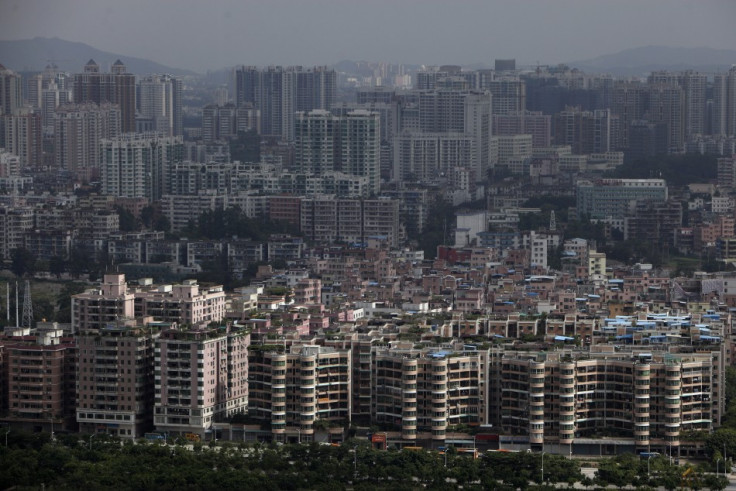Shadow banking, margin lending and a real estate bubble: China's stock exchange bloodbath explained

Three main offenders are being touted as the cause of China's recent $3tn (£1.9tn, €2.7tn) shares rout: shadow banking, margin lending and a real estate bubble which has been waiting to burst.
The government has now slammed the brakes on by any means necessary, pumping its own money into big blue chips and then preventing investors offloading falling shares. What is really needed is far-reaching regulatory reform of the country's entire financial system – a painful proposition.
Here is a brief overview of each of the main offenders:
Shadow banking
The shadow banking system refers to the collective of intermediaries that carry out various banking activities, but do so outside, or in ways only loosely linked to, the traditional system of regulated depository institutions.
China's large state-run banks are heavily regulated so shadow banking provides an alternative range of quicker and easier ways to procure financial services.
These intermediaries can handle loans without holding as much in the way of reserves and are partly responsible for the rapid rate of credit creation in China since 2010, as well as a general lack of transparency in much off-balance sheet or non-bank activity.
The swell in shadow banking has been driven by caps on bank lending volumes imposed by the People's Bank of China (PBOC). Banks limit loans to deposits of 75%, while shadow banks are not subject to bank limits on loan or deposit rates.
Perhaps two-thirds of the flow of business into shadow banking is effectively "bank loans in disguise," where a bank is at the core of the transaction and takes the great bulk of the risks and rewards, but pays non-banks to participate in order to avoid regulatory constraints and costs.
Shadow banking credit arrangements often feature the use of loans and leases by trust companies, which are flexible entities that combine banking and asset management activities.
China poured more concrete between 2011 and 2013 than the US did over the entirety of the 20th century
Another common practice is the use of entrusted loans, made on behalf of large corporations, using banks or finance companies as intermediaries. They are most commonly made to other companies in the same group or to suppliers or customers. There is also an interbank version, where one bank will act on behalf of another.
Other means of providing credit include "Bankers' Acceptances", notes issued by banks that promise to pay a fixed amount a few months in the future, while microfinance companies are licensed to lend in small amounts. A lower market tier is mopped up by financial leasing, guarantees, pawn shops and smaller unofficial lenders.
Margin loans
Wedding shadow banking activities directly to the stock market is the use of margin loans, the means to borrow against the value of securities and so invest more in shares. Analysts are unsure to what extent margin lending has pumped up China's stock exchanges, but it's a lot – we are talking trillions of yuan.
Margin lending can be carried on within umbrella trusts, which are kicked off with injections of cash from large investors, which will make up say 20% of the fund. The other 80% is funded by smaller investors selling stakes to each other in the form of wealth management products promising yields of about five times leverage.
Another approach to margin loans is done by small web-based financing firms which charge about 20% interest per annum and promise up to 10 times return on investment, in accounts which can be opened for as little as 1,000 yuan ($160, £103, €144).
Real estate bubble
China poured more concrete between 2011 and 2013 than the US did during the entire 20<sup>thcentury, noted the Czech-Canadian scientist and policy analyst Vaclav Smil.
This was to meet the demand for homes and infrastructure of potentially 1.4 billion people, following government reforms to allow people to privately own property, which came into effect in 2004. This paved the way for the current economic boom.
Rather like people's obsession with property here, nobody ever expected its value to fall in China. But it did in 2014 and has since been decelerating. This has resulted in so-called ghost cities made of apartments that were built and sold, yet remain unoccupied.
The scramble away from real estate has also helped inflate Chinese equities. This has caused some analysts to say the real estate bubble has in fact been transferred to an equities bubble. This is now exploding violently, promoting the firefighting measures from state authorities.
An obsession to own real estate, lots of unsustainable credit arrangements, rapacious financial intermediaries extending the reach of banks across over-valued shares markets – it all sounds vaguely familiar.
© Copyright IBTimes 2024. All rights reserved.























